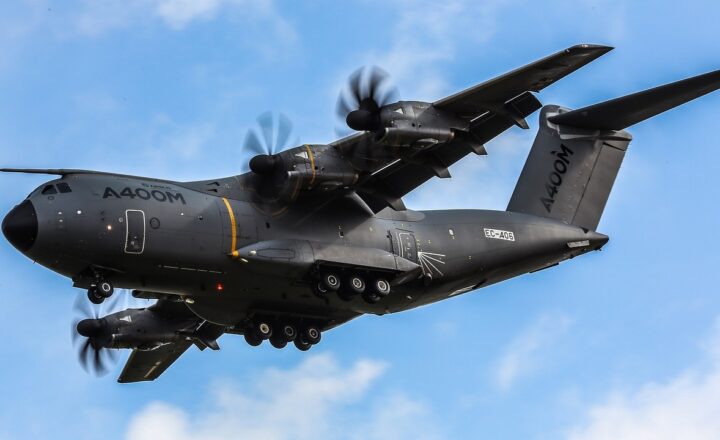
Air travel has long been associated with innovation, speed, and efficiency. However, the introduction of Artificial Intelligence (AI) is set to transform the industry into something we have only begun to imagine. As we delve deeper into the realm of AI, it’s essential to explore how it is reshaping our experiences in the skies, from the booking process to in-flight services, security measures, and even aircraft design.
1. AI-Enhanced Booking Systems
The journey of air travel begins with the booking process, and AI is making this experience smoother and more user-friendly. Traditional booking methods can often be cumbersome, requiring travelers to sift through countless options. AI changes the game by utilizing algorithms to personalize and expedite the booking experience.
For instance, AI-driven chatbots are now commonly employed on airline websites, providing instant responses to customer inquiries at any hour of the day. These chatbots can handle everything from flight availability to recommended routes based on previous travel patterns. Additionally, AI can analyze user data to suggest the best prices for flights, helping customers make informed decisions without the hassle of searching for hours.
2. Smart Baggage Handling
One of the most frustrating aspects of air travel is dealing with lost luggage. Fortunately, AI is paving the way for smarter baggage handling systems that reduce the likelihood of mishaps. Utilizing advanced image recognition technology, AI systems can keep track of luggage as it moves through various stages of transit.
Airports are beginning to employ smart tags and RFID (Radio-Frequency Identification) technology in baggage tracking. This means that as soon as you check in, your baggage can be uniquely identified, monitored, and traced throughout your journey, enhancing security and minimizing lost luggage incidents. Customers can receive real-time updates on their baggage location through mobile apps, drastically improving the travel experience.
3. Enhancing Flight Safety with AI-Powered Predictive Maintenance
Safety is paramount in the aviation industry. AI technology is being harnessed to improve the maintenance and operation of aircraft, ensuring that they are in optimal working condition. Predictive maintenance powered by AI can analyze vast amounts of data from sensors embedded within the aircraft. This allows for the early detection of potential maintenance issues before they become significant problems.
By addressing issues proactively, airlines can reduce operational downtimes, avoid costly repairs, and maintain a safety-first approach, thereby improving the overall flying experience for passengers. This shift towards data-driven maintenance practices is changing the landscape of aircraft operations, promoting a culture of safety and efficiency.
4. AI in Air Traffic Management
Air traffic management is another area greatly benefiting from AI technology. Traditional systems have faced challenges with increasing air traffic, leading to delays and efficiency issues. AI can analyze vast datasets, including weather conditions and aircraft trajectories, to optimize flight paths and reduce delays.
AI algorithms can predict flight delays and suggest alternate routes in real-time, ensuring that aircraft remain on schedule. This not only enhances operational efficiency but also leads to significant cost savings on fuel and a reduction of carbon emissions, aligning with the global push for sustainability within the aviation sector.
5. In-Flight Services Powered by AI
Once onboard, passengers can expect an enhanced travel experience driven by AI. Airlines are leveraging AI to provide personalized in-flight services that cater to individual preferences. For instance, AI systems can analyze passenger data and offer customized food and beverage options based on dietary restrictions or previous orders.
Further, the integration of AI in customer service allows flight attendants to prioritize requests and respond more effectively, making for a more enjoyable journey. Voice recognition and natural language processing technologies enable onboard AI assistants to respond to passengers’ needs without human intervention. Passengers can simply vocalize their requests, and AI will facilitate the response.
6. Fuel Efficiency and Sustainable Aviation
As concerns for the environment rise, AI is playing a crucial role in driving sustainability efforts in aviation. AI technologies can assist airlines in optimizing fuel efficiency by analyzing flight data to determine the best altitudes, speeds, and routes for maximizing fuel savings. The result is a reduction in carbon emissions, which is essential for battling climate change.
Additionally, the development of electric and hybrid aircraft designs utilizes AI for simulations and advanced engineering calculations. By fostering innovation in aircraft technology, AI contributes to building a more sustainable air travel industry for the future.
7. Conclusion: A New Era in Air Travel
In conclusion, the integration of AI into air travel is revolutionizing the way we experience flight. From personalized booking experiences to smart baggage handling, enhanced safety measures, improved air traffic management, and tailored in-flight services, AI is creating a comprehensive ecosystem that improves operational efficiency and elevates passenger satisfaction.
As technology continues to advance, it is clear that AI will play an increasingly vital role in shaping the future of air travel. While there are still challenges to address, the potential benefits are enormous, setting the stage for a new era in aviation where convenience, safety, and sustainability take center stage.
As we look ahead, we can expect that the skies will become increasingly intelligent, offering travelers an experience that is not only efficient but also personalized, safe, and green. The future of flight is bright, and with AI at the helm, the possibilities are limitless.







